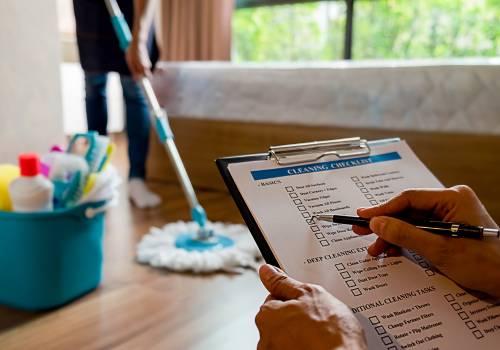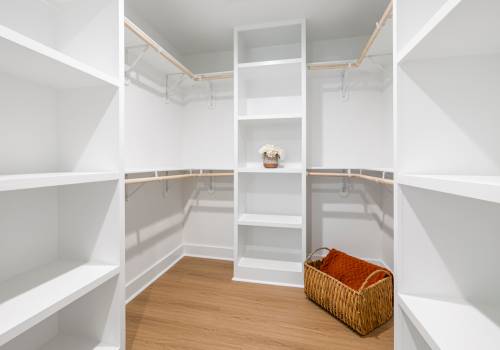27 Survival Tips for Keeping the Peace With Any Roommate
You’ll face countless challenges when sharing your living space with another person, from deciding who takes out the trash to managing conflicting social schedules.
While the prospect of living with a roommate might seem intimidating, you don’t have to let minor disagreements escalate into full-blown conflicts.
Whether you’re moving in with your best friend or a complete stranger, following proven strategies can help you establish a peaceful coexistence.
These practical tips will transform your shared living experience from potentially problematic to surprisingly smooth, and you’ll discover exactly how to handle every situation that comes your way.

Set Clear House Rules Early
Clear communication at the start of any roommate relationship establishes expectations and prevents future conflicts.
You’ll need to schedule a meeting with your roommate(s) within the first week to outline basic guidelines for shared living spaces.
During this discussion, address important topics like quiet hours, guest policies, cleaning responsibilities, and shared expenses.
Don’t forget to document your agreed-upon rules in writing – a simple text or email will suffice.
Cover specific details such as bathroom schedules, kitchen cleanup timing, and how you’ll handle shared items like toilet paper or dish soap.
Create a system for addressing rule violations that works for everyone.
While it might feel awkward to be this formal initially, having clear boundaries will give you more freedom and fewer headaches as your living arrangement progresses.
Create a Cleaning Schedule

A well-structured cleaning schedule prevents the most common source of roommate tension.
Start by listing all cleaning tasks, from vacuuming to washing dishes, then divide them fairly among roommates.
You’ll want to rotate responsibilities weekly or monthly to guarantee everyone shares both the easy and demanding chores.
Create a digital calendar that’s accessible to everyone, with automated reminders for each person’s duties.
Be specific about cleaning standards – define what “clean” means for each task to avoid misunderstandings.
If someone can’t complete their assigned task, they should arrange a swap with another roommate or provide advance notice.
Don’t forget to include occasional deep-cleaning sessions for tasks like cleaning the oven or washing windows.
When everyone knows their responsibilities and timeline, you’ll minimize conflict and maintain a cleaner living space.
Respect Personal Space
Setting boundaries helps maintain harmony in shared living spaces.
You’ll need to establish clear expectations about personal areas, including bedrooms, bathrooms, and designated storage spaces.
Don’t enter your roommate’s private areas without permission, and always knock before approaching their room.
Be mindful of noise levels when your roommate’s door is closed, as this often signals their need for privacy or quiet time.
Keep your personal belongings within your designated spaces and avoid letting them spill into common areas.
If you need to borrow anything from your roommate, always ask first and return items promptly.
Remember that everyone needs alone time, so respect when your roommate signals they need space.
This includes being aware of how often you invite guests over and discussing visitor policies in advance.
Communicate Financial Expectations

Regular financial discussions are essential to prevent conflicts between roommates.
Start by creating a clear written agreement outlining how you’ll split rent, utilities, groceries, and shared supplies.
You’ll want to decide who’s responsible for collecting payments and managing shared accounts.
Set up a system that works for everyone – whether it’s using payment apps, maintaining a household spreadsheet, or keeping physical receipts.
Don’t forget to establish due dates for all shared expenses and stick to them.
If you’re sharing groceries, decide upfront how you’ll track purchases and divide costs.
When unexpected expenses arise, address them immediately.
If your roommate’s having trouble paying their share, they should let you know before the due date.
Always keep records of payments and agreements to avoid misunderstandings later.
Share Common Area Time
Living harmoniously in shared spaces depends on thoughtful coordination of common area usage.
You’ll need to establish clear expectations about sharing the kitchen, living room, and bathroom during peak hours like mornings and evenings.
Create a flexible schedule that accounts for everyone’s routines.
If you’re planning to host friends or need extended time in common areas, give your roommates advance notice.
Don’t monopolize shared spaces – be mindful of how long you’re using the kitchen to cook or occupying the living room for gaming or TV watching.
Consider creating designated quiet hours for studying or working from home.
When you’re in common areas, use headphones for music or videos.
If conflicts arise about space usage, propose rotating schedules or specific time blocks for activities that require exclusive access.
Establish Quiet Hours

A consistent quiet-hours policy serves as the foundation for peaceful coexistence among roommates.
You’ll need to work together to establish times when noise should be kept to a minimum, typically during late evening and early morning hours.
Set specific timeframes that work with everyone’s schedules – consider factors like work shifts, class times, and study habits.
Don’t forget to account for weekends, which might warrant different quiet hours than weekdays.
Make sure you’re clear about what constitutes “quiet” – this includes TV volume, phone calls, visitors, and other common noise sources.
Once you’ve agreed on quiet hours, post them in a visible spot and respect them consistently.
If you need an exception, communicate with your roommates in advance.
This flexibility, combined with clear boundaries, helps maintain both freedom and consideration.
Handle Guest Policies Upfront
Smart roommate relationships depend on clear guest policies established from day one.
You’ll need to address key issues like overnight visitors, party sizes, and how much advance notice is required before hosting.
Set specific limits on the number of consecutive nights any guest can stay and agree on rules for shared space usage when visitors are present.
Create a shared calendar where you’ll mark when guests are coming, and establish guidelines for quiet hours that apply to visitors too.
You’ll want to discuss how to handle unexpected drop-ins and whether significant others deserve different consideration.
Don’t forget to outline expectations for guest behavior, including kitchen use, bathroom etiquette, and parking arrangements.
Put everything in writing to prevent misunderstandings and maintain household harmony.
Split Household Supplies Fairly

Beyond guest policies, successful roommate arrangements need a clear system for sharing household supplies.
You’ll want to create a detailed list of shared items like paper towels, cleaning supplies, and toilet paper.
Decide if you’ll take turns buying these items or split the costs evenly each month.
Consider using a shared expense tracking app to log purchases and balance payments.
You can either maintain a collective supply fund or rotate responsibility for specific items.
Don’t forget to establish minimum stock levels – when supplies run low, whoever notices first should alert the others.
For personal items like food, toiletries, or specialty cleaning products, keep them separate unless you’ve agreed to share.
If you’re sharing groceries, create a system to track what each person contributes and consumes to prevent misunderstandings.
Address Issues Immediately
Most roommate conflicts escalate because people wait too long to address them. When you notice something that bothers you, bring it up within 24-48 hours.
Don’t let frustrations simmer until you explode over a minor issue that could’ve been resolved weeks ago.
Choose a time when you’re both calm and have privacy.
Frame the conversation around specific behaviors rather than character attacks: “I’ve noticed the dishes are often left overnight” works better than “You’re so messy.”
Listen to your roommate’s perspective and be ready to compromise.
You might discover they’ve valid reasons for their actions or different expectations about shared living.
If you can’t reach an agreement, suggest creating a written roommate agreement that clearly outlines expectations and responsibilities.
Keep a Shared Calendar

Everyone benefits from maintaining a shared digital calendar to track household schedules and responsibilities.
You’ll want to include cleaning rotations, bill due dates, maintenance visits, and each roommate’s work hours or class schedules.
This visibility helps prevent conflicts and misunderstandings about shared spaces and quiet times.
Choose a platform that’s easily accessible to all roommates, such as Google Calendar or Apple Calendar, and set up automatic notifications for important deadlines.
Make sure you’re marking personal events that affect others, like hosting friends or having overnight guests.
You can also use the calendar to schedule house meetings, coordinate grocery shopping, or plan shared meals.
Update your entries promptly when plans change, and encourage your roommates to do the same.
Maintain Common Areas Clean
While digital scheduling helps organize responsibilities, keeping shared spaces tidy requires clear guidelines and consistent effort.
You’ll need to establish basic cleaning standards with your roommates, focusing on high-traffic areas like the kitchen, bathroom, and living room.
Define what “clean” means to avoid misunderstandings – specify tasks like wiping counters, sweeping floors, or taking out trash.
Create a rotating cleaning schedule that divides tasks fairly, and stick to it. Don’t let dishes pile up in the sink or leave personal items scattered in common spaces.
When you make a mess, clean it immediately. If you’re sharing cleaning supplies, decide how you’ll split the costs and maintain inventory.
Set Temperature Guidelines

Temperature preferences can trigger serious conflicts between roommates, with some preferring arctic conditions while others seek tropical warmth.
You’ll need to establish clear guidelines that work for everyone’s comfort and budget.
Start by agreeing on reasonable temperature ranges for different times of day – perhaps 68-72°F during waking hours and 65-70°F at night.
If you can’t find middle ground, consider alternating control weekly or splitting the difference between your preferred settings.
You can also adjust your personal space with fans, space heaters, or extra blankets.
Don’t forget to discuss how you’ll handle the energy bills.
You might agree to cap the thermostat at certain temperatures during peak seasons or split any costs above a baseline amount.
Define Food Sharing Boundaries
Food sharing can quickly become a source of tension when living with roommates, especially if boundaries aren’t clearly established from the start.
You’ll need to have an upfront discussion about whether you’ll share groceries or keep them separate.
If you choose to share, create a system for splitting costs and replacing items when they run low.
Consider designating specific shelves or areas in the refrigerator and pantry for each roommate’s personal items.
You can label containers and spaces to avoid confusion.
For shared staples like condiments or cooking oils, decide who’ll purchase what and how you’ll handle replacements.
If you’re not sharing food, respect each other’s items and always ask before borrowing anything.
Remember to clean up immediately after using shared kitchen spaces to maintain harmony.
Practice Basic Courtesy

Living harmoniously with roommates requires practicing basic courtesy in your shared space.
Start by keeping noise levels reasonable, especially during sleeping hours and study times.
When you’re using common areas, clean up after yourself promptly and return items to their proper places.
Don’t monopolize shared spaces like the bathroom during peak hours, and give advance notice if you’ll need extended time.
If you’re having guests over, let your roommates know ahead of time.
Keep your personal items contained to your designated areas, and don’t borrow belongings without asking first.
When receiving deliveries or phone calls, handle them quietly.
Remember to take turns with household tasks like emptying the trash or cleaning shared spaces.
These small acts of consideration will help maintain a respectful living environment.
Create Bathroom Schedules
Three roommates sharing one bathroom can quickly lead to morning chaos without proper coordination.
Start by mapping out everyone’s daily commitments, including work and class schedules, to identify peak usage times.
You’ll need to establish clear time blocks that give each person enough privacy and preparation time.
Create a simple calendar showing each roommate’s designated shower and grooming periods.
Allow 30-45 minutes per person, factoring in hair drying and makeup application.
Don’t forget to account for evening routines too. When conflicts arise, trade time slots instead of creating tension.
Keep a dry-erase board on the bathroom door to note schedule changes or maintenance issues.
Remember that flexibility matters – you can always adjust the schedule if it’s not working for everyone.
Manage Utility Bills Together

Many roommates face disputes over utility payments, but a clear system prevents financial strain and household tension.
Create a shared spreadsheet to track monthly bills for electricity, water, gas, and internet.
You’ll want to rotate responsibility for paying each utility, ensuring everyone maintains awareness of actual costs.
Keep digital copies of all bills in a shared folder, and set up automatic payment reminders.
If one person’s name is on all utilities, establish a specific date when others must transfer their portion.
Consider using apps like Splitwise or Venmo to streamline payments and maintain records.
Address any payment delays immediately and document all transactions.
For varying usage patterns, you can adjust splits based on factors like room size, private bathrooms, or extended absences.
The key is agreeing on terms upfront and sticking to them.
Label Your Food
Food sharing disputes can quickly sour roommate relationships and create lasting tensions.
The solution is to establish clear boundaries with your food from day one.
Use a permanent marker to write your name on your items, or designate specific shelves in the fridge and pantry for each roommate.
Don’t assume your roommates will respect unmarked items – even if you’ve verbally claimed them.
Create a simple system that works for everyone, like using colored stickers or containers.
You’ll want to label perishables immediately after shopping and keep your high-value items in your designated spaces.
If you’re open to sharing certain items, create a list of communal foods and establish how you’ll split the costs.
This prevents misunderstandings and guarantees everyone contributes fairly to shared groceries.
Plan Conflict Resolution Methods

Living with roommates means disagreements will naturally arise, even with clear food rules in place.
That’s why you’ll need a structured approach to handle conflicts before they escalate into major issues.
Set up a regular house meeting where everyone can voice concerns openly.
Create a shared document outlining how you’ll address common disputes, like noise levels, guest policies, or cleaning responsibilities.
When conflicts arise, stick to “I feel” statements rather than accusations, and focus on specific behaviors rather than personal attacks.
Don’t let issues fester – address them promptly but calmly.
If direct communication isn’t working, consider using a neutral third party, like a resident advisor or mediator.
Remember to document agreements in writing, so there’s no confusion about what everyone decided.
Share Emergency Contact Information
In any living situation, sharing emergency contact information with roommates could mean the difference between swift action and dangerous delays during a crisis.
Create a shared digital document or post a visible list that includes each roommate’s emergency contacts, including family members, close friends, and primary healthcare providers.
Don’t forget to include essential medical information such as allergies, medications, or chronic conditions that first responders should know about.
Update this information whenever changes occur, and make sure everyone knows where to find it.
You’ll also want to exchange work addresses and typical daily schedules, so you can reach each other during emergencies.
Consider sharing passwords or access codes for shared security systems, and keep a backup copy of this information in a secure, accessible location.
Establish Parking Arrangements

Clear parking arrangements prevent daily frustrations and potential conflicts between roommates.
If you share a driveway or designated spots, establish who parks where and when.
Create a written agreement specifying assigned spaces, guest parking rules, and rotation schedules if needed.
For shared driveways, decide if you’ll park in tandem or if one person consistently takes the spot behind the other.
Consider factors like work schedules to avoid blocking each other in.
If street parking is your only option, agree on how to handle limited spaces during peak hours or bad weather.
Don’t forget to discuss maintenance responsibilities, such as snow removal or keeping the parking area clear of debris.
Also, establish clear guidelines for temporary parking arrangements when one roommate is away or has overnight guests.
Coordinate Laundry Time
Just as coordinated parking prevents driveway disputes, a well-planned laundry schedule helps maintain household harmony.
Start by identifying everyone’s preferred laundry times and work commitments.
Create a shared calendar marking each person’s designated slots, ensuring fair access to machines during peak hours like weekends.
You’ll want to establish clear guidelines about removing finished loads promptly and keeping the laundry area clean.
Set reasonable time limits for how long clothes can remain in machines, and agree on a protocol for handling someone else’s laundry if they’re running late.
Consider alternating prime laundry times weekly or monthly to accommodate changing schedules.
If you’re sharing detergent or fabric softener, decide upfront how you’ll split costs and replenish supplies.
Remember to respect others’ belongings and laundry preferences.
Set Kitchen Usage Guidelines

A well-organized kitchen functions like a professional restaurant, with each person knowing their role and responsibilities.
Start by creating a schedule that outlines when each roommate typically cooks and establish guidelines for sharing common items like cooking oil and spices.
You’ll need to decide if you’re sharing groceries or keeping them separate.
If you’re splitting food costs, create a system to track expenses and rotate shopping duties.
If you’re maintaining separate food supplies, designate specific cabinet and fridge spaces for each person.
Set rules for cleanup timing – dirty dishes shouldn’t sit more than 24 hours.
Consider implementing a “clean as you cook” policy and establish expectations for wiping counters, sweeping floors, and taking out trash.
Don’t forget to coordinate your schedules to avoid kitchen traffic jams during peak meal times.
Manage Mail Distribution
Beyond kitchen coordination, proper mail handling helps maintain harmony among roommates.
You’ll need to establish a designated spot for incoming mail and packages, ensuring everyone can easily access their deliveries.
Create a system where each roommate checks the mail area daily and promptly notifies others when their items arrive.
Don’t open anyone else’s mail – it’s not just inconsiderate, it’s illegal.
If you accidentally open something that’s not yours, be upfront about it and apologize.
When you’re expecting important mail, let your roommates know so they can keep an eye out.
For packages that require signatures, coordinate with your roommates about who’ll be home to receive them.
If you’re moving out, file a change of address form early to avoid mail mix-ups after you’ve left.
Plan Move-Out Procedures

Moving out requires careful planning and clear communication between all roommates to avoid disputes and guarantee a smooth changeover.
Schedule a meeting at least 30 days before the move-out date to coordinate cleaning responsibilities, furniture removal, and utility cancellations.
You’ll need to decide who’ll handle the final meter readings and account closures.
Create a timeline for each roommate’s departure and establish clear expectations for cleaning shared spaces.
Document any existing damage and take photos before anyone moves out.
You’ll want to divide the security deposit fairly based on your rental agreement and any documented damages.
Don’t forget to update your forwarding addresses with the post office and remove all personal belongings from common areas.
Return all keys to your landlord and get written confirmation of your move-out inspection.
Share WiFi Responsibilities
Splitting WiFi costs and responsibilities should be one of your first priorities when setting up shared living arrangements.
Decide who’ll set up the account, handle monthly payments, and serve as the primary contact for service issues.
You’ll need to determine if everyone wants equal internet speed and usage rights.
Create a system for collecting each person’s share of the bill, whether it’s through a payment app or dedicated household account.
Don’t forget to address guest usage policies and bandwidth priorities during peak hours.
If someone works from home or games extensively, you might need to establish fair use guidelines.
Set clear expectations for troubleshooting responsibilities and response times when issues arise.
Consider investing in a quality router that can handle multiple devices and heavy usage.
Define Storage Space Limits

Just as setting clear WiFi boundaries helps maintain harmony, establishing storage space limits prevents territorial disputes between roommates.
You’ll need to divide common areas like kitchen cabinets, bathroom shelves, and closet space fairly, mapping out each person’s designated zones.
Start by measuring shared storage areas and allocating them based on rent contribution or mutual agreement.
Use labels, bins, or shelf dividers to mark boundaries clearly.
If you’re dealing with limited space, consider investing in stackable containers or over-door organizers to maximize vertical storage.
Don’t forget to address seasonal item storage, like winter coats or holiday decorations.
Create a rotation system for these items, and decide upfront where to store shared supplies like cleaning products and paper goods.
When everyone knows their space limits, you’ll avoid the frustration of finding your storage area invaded.
Organize Trash Duties
Regular trash management ranks among the most essential shared responsibilities in any living arrangement.
To maintain harmony, you’ll need a clear system for handling waste disposal duties.
Create a rotating schedule where each roommate takes turns managing trash and recycling for a full week at a time.
During your assigned week, you’re responsible for monitoring all bins, taking them out on collection day, and bringing them back in.
You’ll also need to replace trash bags and guarantee recyclables are properly sorted.
If you can’t fulfill your duties during your week, it’s your job to arrange coverage with another roommate.
Keep a shared calendar noting collection days and who’s responsible.
When everyone follows the system, you’ll avoid the tension that comes from overflowing bins and forgotten pickup days.
FAQs
What Happens if My Roommate’s Significant Other Practically Moves in With Us?
You’ll need to address this directly with your roommate. Set clear boundaries about guests, discuss utilities/rent adjustments if needed, and establish specific visiting limits. Don’t wait until resentment builds up.
How Do I Handle a Roommate Who Constantly Borrows My Clothes?
Your cherished wardrobe’s being shared without consent. Have a frank conversation with your roommate, set clear boundaries, and if needed, keep prized items in your room. Don’t feel bad about protecting your belongings.
Should I Tell My Roommate About Their Loud Intimate Moments?
You should have a respectful, private conversation with your roommate. Let them know you can hear intimate moments and suggest compromises like music or scheduling. Be direct but tactful to avoid embarrassment.
What if My Roommate’s Pet Damages My Personal Belongings?
Like a skilled negotiator, you’ll want to document the damage with photos first. Then calmly discuss it with your roommate, requesting fair compensation. If they won’t cooperate, check your lease’s pet policies for support.
How Do I Deal With a Roommate Who Practices Musical Instruments?
You can negotiate specific practice times, ask them to use muting devices, or find a compromise like practicing when you’re out. Consider suggesting they use practice rooms at local music schools instead.
Final Thoughts
You’ll find that proactive planning prevents problematic patterns with your roommate.
By setting clear boundaries, creating consistent cleaning schedules, and maintaining open communication, you’re establishing a strong foundation for peaceful coexistence.
When you’re willing to discuss difficulties directly and develop detailed agreements, you’ll cultivate a comfortable living environment.
Remember, respect and responsibility are your keys to building a successful roommate relationship that benefits both parties.